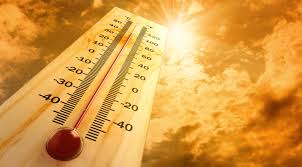
AHA Urges Heart Patients to Take Extra Precautions Amid Summer Heat
As Americans brace for another summer of intense heat and humidity, the American Heart Association (AHA) is urging heart patients to take extra precautions to safeguard their health. The U.S. Centers for Disease Control and Prevention (CDC) reports that over 1,200 people in the country die each year directly due to extreme heat.
“Heat-related deaths and illnesses are mostly preventable if proper safety measures are taken,” AHA President Dr. Joseph Wu stated in an AHA news release. He emphasized the importance of precautions, particularly for infants, older adults, and individuals with high blood pressure, obesity, or a history of heart disease or stroke. Dr. Wu noted that while some people are more vulnerable to heat-related problems, extreme temperatures can affect anyone.
Heart patients may face greater risks: a recent study published in the AHA journal Circulation predicts that cardiovascular disease deaths related to extreme heat could more than double over the next two decades.
To combat the soaring temperatures, Dr. Wu recommends several hot weather precautions. He advises avoiding outdoor activities in the early afternoon when the sun is strongest, increasing the risk of heat-related illnesses. Wearing lightweight, light-colored clothing made of breathable fabrics like cotton or newer sweat-repelling materials, along with a hat and sunglasses, is essential.
Additionally, applying a water-resistant sunscreen with at least SPF 15 and reapplying it every two hours is crucial. Staying hydrated by drinking several cups of water before, during, and after going outside or exercising, and avoiding caffeinated or alcoholic beverages, can help. It is also important to take regular breaks by seeking shade or a cool place, resting for a few minutes, hydrating, and then resuming activities.
Recognizing the symptoms of heat exhaustion and heat stroke is crucial. Symptoms of heat exhaustion include headaches, cool and moist skin, a fast but weak pulse, dizziness, muscle cramps, nausea, and fainting. If these symptoms occur, it is important to move to a cooler place, stop exercising, douse yourself with cold water, and rehydrate. Medical attention may be necessary. Heat stroke, a medical emergency, requires immediate attention. Call 9-1-1 if you experience symptoms such as a high body temperature (103 degrees Fahrenheit or higher), hot and dry skin, a fast and strong pulse, headache, dizziness, confusion, nausea, or fainting.
Despite the need to be cautious, staying active during the summer remains important. Adjusting exercise times to early morning or late evening can help. On particularly hot days, consider working out indoors at a shopping mall, gym, or community recreation center.